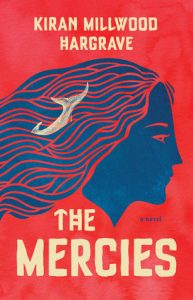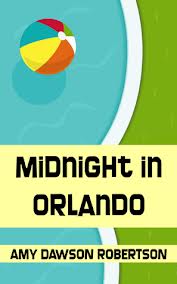Kiran Millwood Hargrave’s novel, The Mercies (2020), is a vivid, sapphic, historical novel that I couldn’t bear to put down. I read this book in nearly one sitting and its dark, passionate story will likely have you doing the same.
Hargrave’s novel is starts in Finnmark, Norway, in 1617. It follows twenty-year-old Maren Bergensdatter as she watches a sudden storm overwhelm the male fishermen trapped on the sea. Most of the men in the village, including Maren’s brother and father, are drowned, and the women must fend for themselves in an isolated world of rock, ocean, and dangerous weather.
Three years later, when Absalom Cornet arrives, carrying with him a reputation for burning witches in Scotland and his new Norwegian wife, Ursa, tensions build in the town as Absalom sows seeds of unrest and rumours of witchcraft among the women. Was the storm a natural disaster, or the work of a curse? Meanwhile, in the lives of these independent women, Ursa encounters a new way of life, perhaps a life that involves Maren in ways neither of them ever anticipated. But Absalom sees only evil brewing in this community of women left without men to guide them, and as tensions build and violence escalates, survival becomes even more difficult.
I heard about this book because a lesbian author I follow on Twitter was reading it and couldn’t recommend it enough, so when I bought it on my ereader a few months ago, I was so excited to read it. The Mercies is a beautiful novel in terms of its wonderful poetic language that is sweeping and immersive. Some of the descriptions of the landscape are so captivating that this book really can take over your day. Hargrave’s novel is also very raw, portraying the dangerous and volatile life of this village with stunning clarity. However, it’s also incredibly dark. Based on the true story of the Vardø storm and the 1620s witch trials, the tragic violence in this book perpetrated against the women in this novel is unsettling and sometimes difficult to read, but told from Maren and Ursa’s dual perspectives, it is also a powerful story of resilience.
Maren and Ursa’s characters are two sides of the same coin—both women trapped without knowing it in a male-dominated world where their paths of marriage and family are laid out for them from birth. However, they are both pushed away from those paths and towards each other as they become alienated and isolated from those around them. Hargrave captures the chaos of suspicion and fear and the relief of finding an ally and a safe place in another person. This book was gorgeous and there really is nothing I love more than historical lesbian fiction. It’s not beautiful and glamorous, like a Sarah Waters novel, rather, it’s raw and dangerous and the peace that both women find with each other is sharply juxtaposed against an unforgiving landscape filled with dangerous accusers.
I recommend this book both for its writing and for its lesbian plot. I think my only criticism would be that it could have used a better ending, or at least one that did some of the characters more justice. Nevertheless, this novel cuts right to the heart and I couldn’t be happier that I read it.
Please visit Kiran Millwood Hargrave on Twitter or on her Website, and put The Mercies on your TBR on Goodreads.
Content Warnings: Physical and psychological torture, execution, domestic abuse.
Rachel Friars is a creative writer and academic living in Canada, dividing her time between Ontario and New Brunswick. When she’s not writing short fiction, she’s reading every queer novel she can find. Rachel holds two degrees in English literature and is currently pursuing a PhD in nineteenth-century lesbian literature and history.
You can find Rachel on Twitter @MsBookishBeauty or on Goodreads @Rachel Friars.


